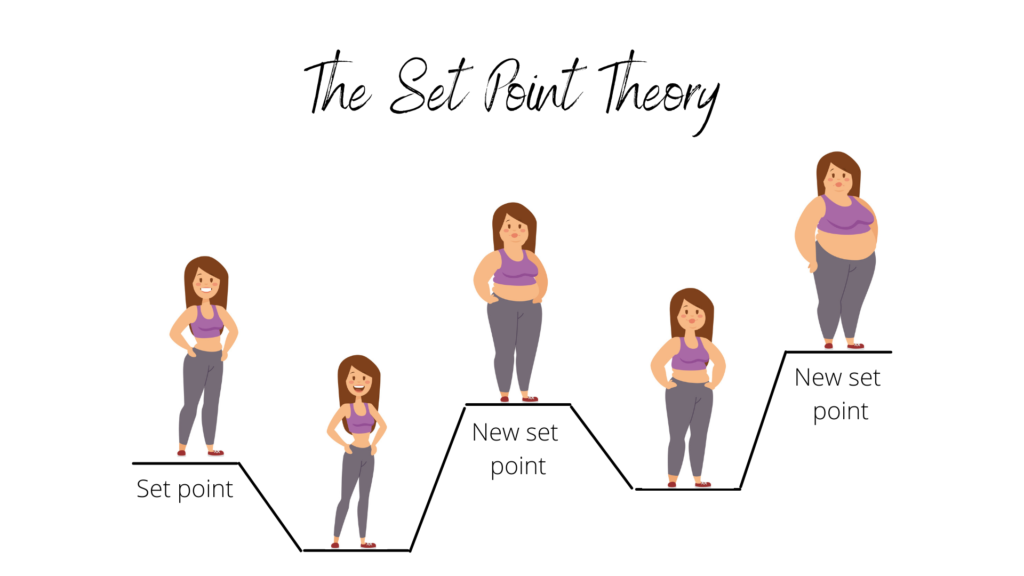
Intuitive eating basics
Intuitive eating is a flexible, non-diet approach to health and nutrition. The concept was developed by two registered dietitians (Evelyn Tribole and Elise Resch), who were fed up with the traditional style of giving their clients diets / meal plans to follow – as this approach often results in yo-yo dieting, weight cycling, food obsessions and disordered eating behaviours.
Essentially, intuitive eating focuses on developing healthy eating behaviours, such as listening to your body, stopping when you are full / satisfied, and coping with stress / emotions without using food. The principles of intuitive eating teaches you how to heal your relationship with food, and to honor your health without dieting.
More than 100 studies have now demonstrated some of the evidence-based benefits associated with intuitive eating. Intuitive eating is associated with improved cholesterol levels, lower BMI, greater satisfaction with life, more optimism, and lower rates of chronic disease. All of this without needing to follow a restrictive, unsustainable diet!
Listening to your body does not mean eating cupcakes and fries all day...
Where dieting teaches you to listen to food rules and meal plans, intuitive eating teaches you to self-regulate by listening to your body. Self-regulation is a skill that we were all born with, but that we tend to lose touch with as we allow food rules to tell us when / what / how to eat.
But listening to your body is not as simple as eating when you are hungry and stopping when you are full. It’s also not eating whatever you want, when you want. Listening to your body means considering your hunger, fullness & satisfaction levels, while choosing to eat foods that leave you feeling your best. Of course, you are allowed to incorporate health values as well. For example, maybe you want to go more plant-based for moral / health reasons, or maybe you want to improve your gut health. It’s a holistic way to take care of your health, while being in tune with your physical needs.
The 4 steps that you need to take to get started
Ready to heal your relationship with food and reconnect to your intuitive eater? Let’s go! Here are four highly effective, easy steps that you can take right away.
Step 1: Create a diet-free bubble for yourself.
The very first thing that you need to do, is to recognize the damage that dieting has done in your life. What damage has dieting done to your relationship with food? E.g. do you struggle with cravings, emotional eating, overeating / bingeing on a regular basis? How many times have you lost weight on a diet, only to regain every last gram (plus some)? Take stock of this damage, and make a firm decision to never diet again.
Then, remove the environmental triggers that may tempt you to turn to dieting again in the future. Start by doing a social media detox: unfollow all of the accounts that promote dieting in any form. Next, throw out any dieting tools: dieting books, magazines, meal plans, shakes / powders, etc.
Yes, this is scary. But it’s also immensely liberating. By rejecting diet culture, you are giving yourself permission to trust your own body again. You are saying YES to healthy self-regulation and NO to unsustainable, inflexible food rules that mess up your relationship with food.
Step 2: Rebuild trust with your body by eating regular, balanced meals.
BEFORE you learn to listen to your body, you need to rebuild trust. After months (or years!) of dieting, your hunger & fullness cues likely won’t be reliable. Your body has essentially been through a famine, and it doesn’t know when the next famine will strike. You need to prove to your body that the food scarcity is over, and that it will never happen again.
The most effective way to do this, is to consistently eat regular, balanced meals: breakfast, lunch, dinner, AND snacks. By “balanced” I mean ensuring that meals include protein, carbs, fat and some colour (fruit / veg). Your body needs all of these food groups to function optimally.
Once you’ve done this for at least 2 weeks, you can move to the next step: learning to listen to your body by using the hunger and fullness scale. This is where you can start deviating from your usual eating routine based on the cues that you get from your body.
Step 3: Use the hunger & fullness scale to guide your intake.
The hunger and fullness scale is a useful intuitive eating tool that can help you to reconnect to your biological cues.

On the scale, 0 is totally empty. It is an urgent, primal hunger. 3 represents mild to moderate hunger – a great place to start eating. 5 is neutral; 7 is comfortably full – a great place to stop eating. 10 is completely stuffed (e.g. after a binge).
When your hunger rating drops below 3, hunger becomes too urgent. This is where you are likely to experience cravings, and to overeat. It’s best to eat before your hunger drops below a 3.
Use this scale each time that you eat, rating your hunger / fullness before, during and after the meal.
Start making some gentle changes to your eating routine based on your ratings. The goal is to stay between a comfortable 3 – 7 on the scale.
Step 4: Build effective coping mechanisms to deal with emotions and stress, without using food.
Do your emotions control you? Do you turn to food when you are stressed? Well guess what – this is a normal side effect of dieting. The good news is that you overcome emotional eating by following the above steps, and by building alternative coping mechanisms.
The key to overcoming emotional eating, is asking yourself 2 questions when you feel an urge to eat:
- “What am I feeling right now?”
- “What is the outcome that I am seeking, by turning to food?”
Once you have the answer to these two questions, try to come up with an alternative activity that achieves the same outcome. For example, if you need pleasure, maybe you could try watching your favourite movie. If you need comfort, a warm shower might do the trick.
Keep exploring, being patient with yourself. It will take time to find alternative coping mechanisms that really do the trick for you.
BONUS TIP – get support.
The road to a healthy relationship with food can be long and bumpy, but it doesn’t have to be. If you are ready to kiss dieting and binge / emotional eating good-bey, and to become an intuitive eater, I would love to help you with this.
You can book a free game-plan call with me here, where I’ll help you to come up with a plan that works for you. This call will also be an opportunity for us to decide whether we are a good fit to work together.







